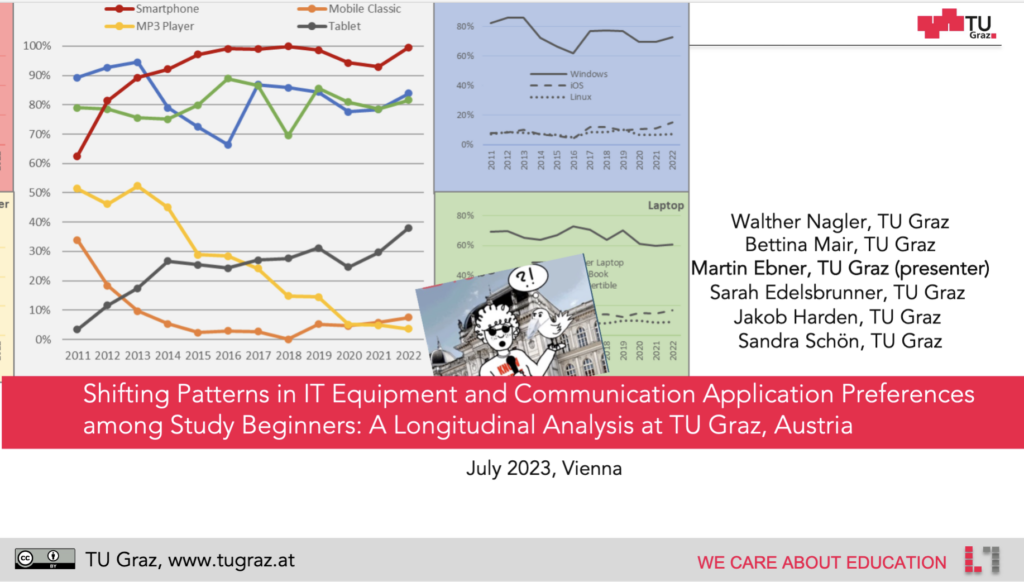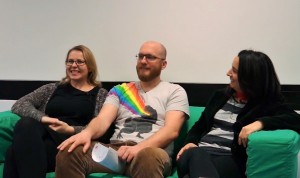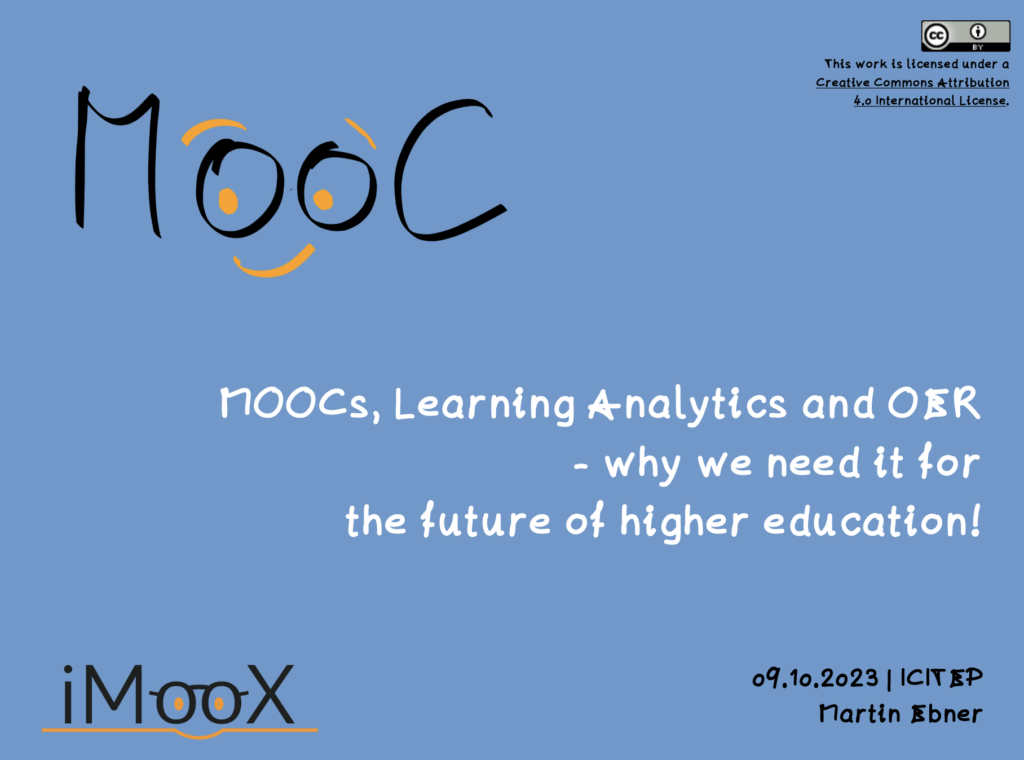Wir wurden gebeten einen kurzen Artikel zu „Wirkung der nationalen MOOC-Plattform iMooX.at auf die digitale Transformation der Hochschulen“ in dem Buch zur digitalen Transformation an österreichischen Universitäten beizutragen. Da ist nun die publizierte Fassung:
Zusammenfassung:
2012 entstand die österreichische MOOC-Plattform iMooX.at in Zusammenarbeit zwischen der Universität Graz und der Technischen Universität Graz (TU Graz). 2020 wurde mit dem Projekt „iMooX – Die MOOC-Plattform als Service für alle österreichischen Universitäten“ das Ziel verfolgt, iMooX zu einer nationalen MOOC-Plattform auszu- bauen. Das Projekt ermöglichte die Produktion und Bereitstellung von MOOCs für alle österreichischen Universitäten. Dieser Artikel präsentiert vorläufige Ergebnisse zu den Auswirkungen von iMooX.at im Hinblick auf die digitale Transformation in der Hochschulbildung. Als Basis dient dafür eine Befragung von MOOC-Ersteller*innen. Als Ausblick wird die Integration von Microcredentials in MOOCs diskutiert.
[Artikel @ Verlag Technische Universität Graz]
[Artikel @ ResearchGate]
Zitation: Ebner, M., Schön, S. & Zwiauer, C. (2023) Wirkung der nationalen MOOC-Plattform iMooX.at auf die digitale Transformation der Hochschulen. In: Digitale Transformation an österreichischen Hochschulen. S. 146-157. DOI: 10.3217/978-3-85125-966-7-16







